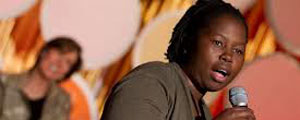
A Bulawayo-based women’s support group has embarked on a programme targeting teenage girl-heading families for skills training and entrepreneurship to ensure self reliance.
Report by Nqobani Ndlovu
Girls Development Initiative (GDI) programme director Precious Simba yesterday said the programme is presently targeting teenage girls in high density suburbs.
Simba said they embarked on the programme after realising that there has been an increase in the number of girl child-headed families needing support.
“Due to the HIV and Aids pandemic we have seen an increase in the number of families that are headed by the girl child in the country,” she said.
“This is why we decided to start this programme of assisting the girl child.” The National Aids Council (NAC) estimates that there are close to one million HIV and Aids-orphaned children.
Simba said child-headed households were much more vulnerable and at risk, especially girls who sometimes are forced into prostitution to make ends meet. “We train these girls life support skills and how to lead their families since they will be the ‘parents’,” she continued.
“We also give them financial support like paying their school fees.”
- Chamisa under fire over US$120K donation
- Mavhunga puts DeMbare into Chibuku quarterfinals
- Pension funds bet on Cabora Bassa oilfields
- Councils defy govt fire tender directive
Keep Reading
Currently, there are 95 girls, ranging from 14 to 18 years, under the programme, which is supported by the United States Agency for International Development (USAid). The girls are from Mpopoma, Pumula, Emakhandeni, Luveve and Cowdray Park.
“We also teach them female reproductive health, financial literacy, career mapping, goal setting, projects management and basically interactive learning on survival skills,” Simba added.
The United Nations Children’s Emergency Fund (Unicef) estimates that there are more than 100 000 children living without parental care and supervision with most of the child-headed households being a consequence of HIV and Aids.











